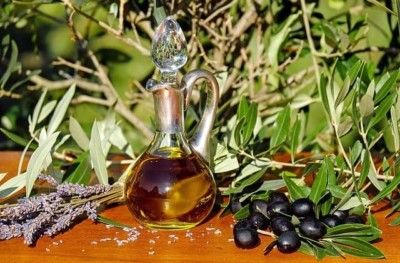
Making healthy oils yourself!
Homemade oils are especially delicious and healthy. They contain many good ingredients, such as fatty acids and vitamins, and we know that the oils have been cold-pressed. It can also be refined with additions such as herbs, fruits, honey or garlic.
What is virgin oil?
Virgin oil is cold pressed oil. Due to the low temperature during the production, all the good components of the oil are retained. Oil that is for sale in stores is often heat treated, so some of the beneficial components in the oil are lost.
There are also oils that are heated for production because roasting must be done. Examples are soybean, corn or pumpkin seed oil. These are heated to positively influence the taste. Anyone can produce virgin oil at home with an oil press.
Warm pressed oils
Arm pressing takes place at about 100 degrees. Some of the valuable ingredients are lost in the process, but it has a longer shelf life. More oil comes out in hot pressing than in cold pressing.
Oil cold-pressed at home is extremely healthy, but does not have as long a shelf life. One can produce oil for it freshly in the quantity, in which it is needed up-to-date.
The self-pressed oil clarify:
The press retains most of the fiber constituents in the pomace. Nevertheless, it may be that a few fibers remain in the oil. If this bothers you, you can clarify the oil again by running it through a coffee filter or a nut milk bag.
What are the healthy components in the oil?
Oil contains amino acids, fatty acids, minerals, pyhtosterols and vitamins.
Amino acids:
This is an important building block of protein. It is needed by the human body for various anabolic processes. Dietary intake is important, as the body cannot produce it itself.
Fatty acids:
These are important, for example, for the absorption of vitamins. Everyone knows omega-3 nowadays. The heart benefits from omega-3. A lot of omega-3 is found in hemp oil, linseed oil, rapeseed oil and walnut oil. It is important that omega-3 is taken in a balanced proportion to omega-6.
Minerals:
Minerals are important for blood formation and bone structure. There are small amounts of minerals in many oils, for example, iron and magnesium.
Pyhtosterols:
This is a secondary plant substance. It has a positive effect on cholesterol levels and there are speculations that it also has anit-carcinogenic effect.
Vitamins:
Many oils contain vitamins D, E and K. Especially olive oil can score with a large amount of vitamin A.
Which oils are particularly healthy?
There is a wide variety of oils to choose from. You can press vegetable oils yourself.
Coconut oil
Coke nut oil is considered particularly healthy. It consists of more than 90 percent saturated fatty acids. The saturated fatty acids protect against heart disease and have a positive effect on cholesterol levels.
It also contains the fatty acid lauric acid. This fatty acid is converted during digestion and then acts against harmful microorganisms such as bacteria, viruses and fungi. It stores well at room temperature and can be used like butter or margarine.
Peanut oil
It has about 37 percent unsaturated fatty acids and can be used for high blood pressure and for lowering cholesterol levels. Peanut oil contains vitamin E, which strengthens the immune system and can act against free radicals. Also good for health are the contained vitamins B1, D and K.
Grape seed oil
This oil has been around since the 19. Century. It has special spreading naturally in the wine-growing areas around Mediterranean area. It is one of the most expensive oils. It can lower blood pressure and have a positive effect on blood lipid levels.
It may protect against heart attacks, strokes and thrombosis. The contained vitamin E can protect against free radicals, reduce the risk of cancer and prevent aging.
Olive oil
It is one of the most popular oils in Germany. It tastes good and can have a positive effect on the cardiovascular system and cholesterol levels. It can help to reduce LDL cholesterol, the so called bad cholesterol.
The HDL cholesterol, the so-called good cholesterol can be increased. Here is a great article on pressing olive oil.
Rapeseed oil
It is the cheapest and most popular oil from Germany. Only ten grams of rapeseed oil cover the daily requirement of omega-3. It contains alpha-linolenic acid, or ALA, which the body cannot produce by itself. ALA can inhibit inflammation, dilate blood vessels and promote blood clotting.
How to press oil yourself?
oil is pressed, an oil press works like a juicer. The pressed material goes in at the top. The press releases the so-called pomace at one point, which is the dry components of the pressed plant that are left over.
The freshly pressed oil comes out of the device in a different place. A small amount of fiber remains in the oil depending on the quality of the press. If you want, you can run the oil through a coffee filter, that is all the fiber components filtered out.
What to watch out for?
Fresh oil goes rancid faster than store-bought oil, which is specially treated to make it last longer. It is best to produce only as much oil as you need.
If you have produced too much, store it in a dark bottle in the refrigerator. When the fatty acids oxidize, the oil becomes rancid.
When not to use the oil?
Oil should no longer be used if:
- it changes color,
- it changes the taste,
- or if it settles a little at the bottom of the bottle.
Tips and tricks for oil pressing
The remaining dry component does not have to be disposed of, if you have a pig you can feed it to it. Those who do not, can still use it in the kitchen.
It is excellent for giving salt a special touch. It is worth trying with it, for example it looks good in a bread or in a dip.






